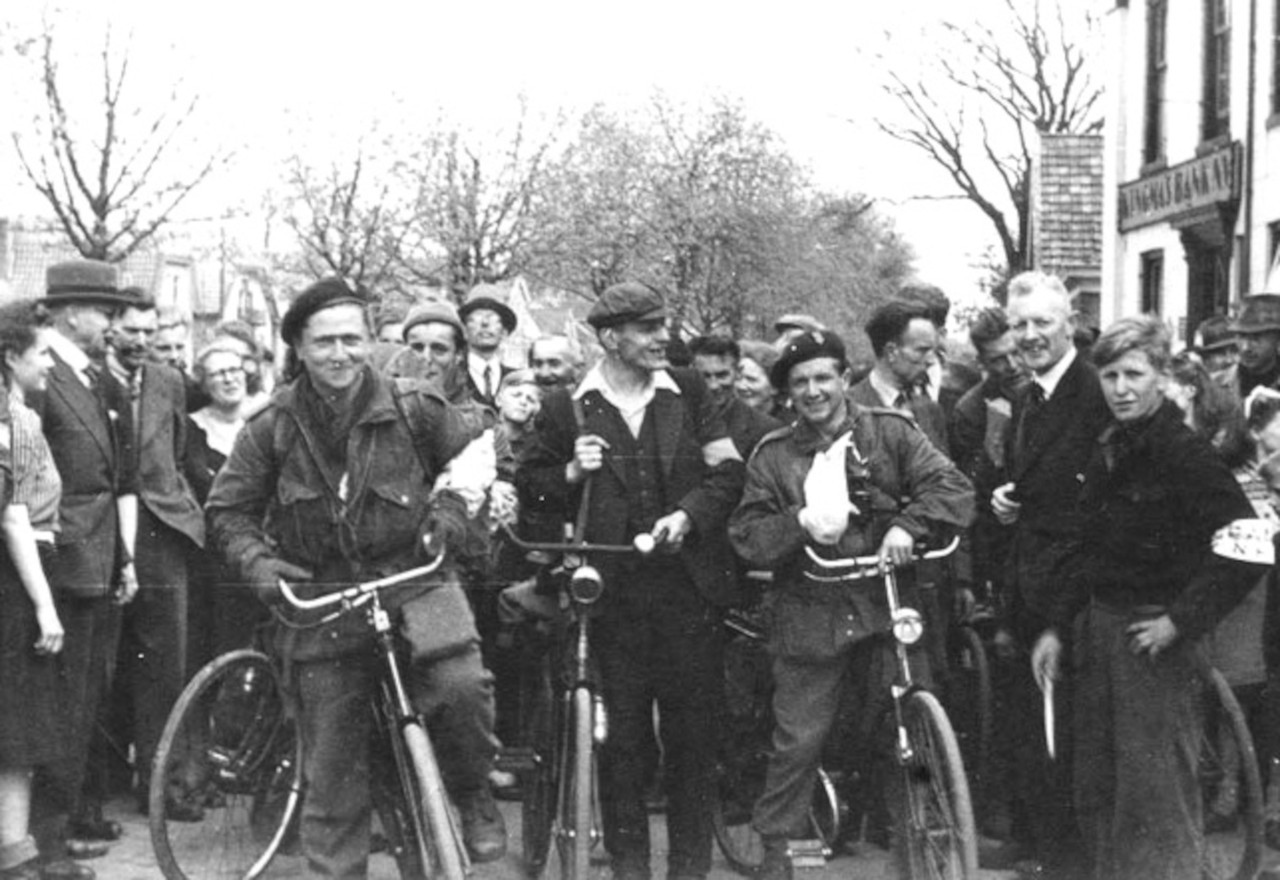These paratroopers belonged to the 2nd Company of the 3rd Régiment de Chasseurs Parachutistes – 3rd SAS. They were dropped in so-called “sticks”: small groups of around fifteen men. Due to various circumstances, not all groups landed in the correct locations, and many became separated from each other.
One of these groups was the 13th stick, commanded by Sous-Lieutenant Albert Vidoni. Part of the stick landed in Weperpolder, northeast of Oosterwolde, while another group of seven men — including Vidoni himself — landed southeast of Haulerwijk.
Shortly after landing, Vidoni and his men captured four German soldiers at a nearby farm. As the Frenchmen had no means to keep prisoners, the captured Germans were taken outside and executed immediately.
The French then withdrew into nearby fields, attempting to hide — but were soon discovered by a Dutch collaborator, who alerted a large force of German troops stationed nearby. The small group of paratroopers had to face around 200 German soldiers. A fierce battle followed, during which the French fought valiantly.
René Berthier, Christian Ferrandi, Pierre Pauli, and Francis Recollon were wounded and taken prisoner. Chasseur de 2e Classe Henri Pintaud, aged just 21, was killed by a shell fragment to the heart. Commander Vidoni was wounded in the hand but managed to escape westward with two others.
In the following days, Vidoni and his two men were hidden by the Dutch resistance on a farm near Haule. The Canadians had been unable to reach the paratroopers within the planned 48 hours. When the Canadians approached Oosterwolde on 13 April, the French decided to take their chance. With the help of the resistance, they mounted bicycles and rode toward Oosterwolde.
There, they met the B Squadron of the Royal Canadian Dragoons, who had entered the village between 12:00 and 13:00 in their armored vehicles. The liberation took place without bloodshed, as the German forces had already withdrawn. The arrival of the Canadians brought immense joy to the village.
Vidoni and his men must also have been deeply relieved when they finally saw the Canadian vehicles. What was meant to be a two-day mission lasting from 10 to 11 April, unexpectedly stretched until 13 April. During that time, the 13th stick had fought hard and endured much. In 1951, Albert Vidoni was awarded the Dutch Bronze Cross for his bravery during Operation Amherst.
